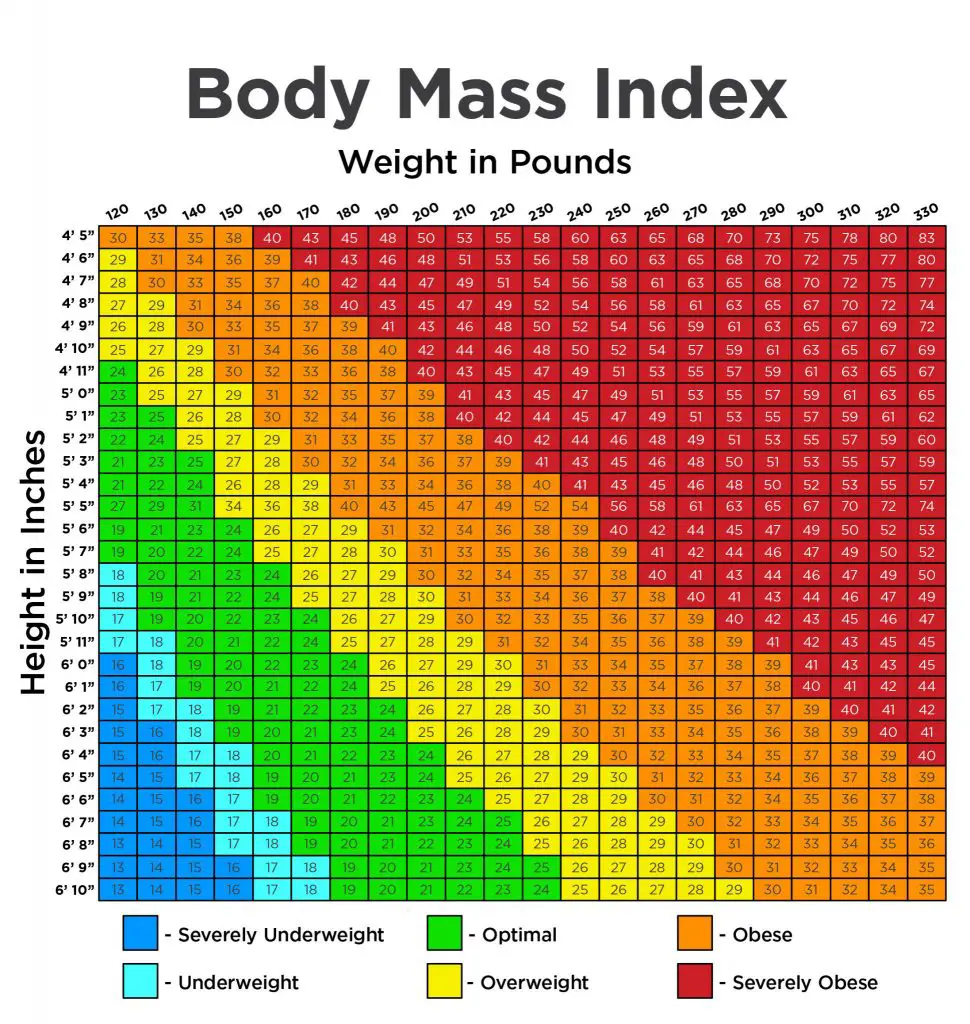Body Mass Index (BMI) is a number used to indicate a person’s body weight relative to their height. It is calculated by dividing the person’s weight in kilograms by the square of their height in meters. A person is considered overweight if their BMI is 25 or more, and obese if their BMI is 30 or more. Body Mass Index is useful for evaluating a person’s health, as it provides a good indication of the amount of body fat a person is carrying. A high BMI can be an indicator of high risk of developing certain diseases, such as type 2 diabetes or heart disease.
It’s important to note that BMI does not tell the whole story, as it does not take into account a person’s body shape or muscle mass. For example, a person with a lot of muscle mass may have a high BMI, but not be overweight or obese. In addition, BMI is not suitable for children or pregnant women. It is also not a good indicator of health for athletes, as their high muscle mass can lead to a high BMI even though they are very fit. For most people, Body Mass Index is a useful tool that can help determine if they are at an appropriate weight for their height. It is important to take into account other factors such as body shape, muscle mass, and overall health when assessing a person’s weight.
am i obese or overweight
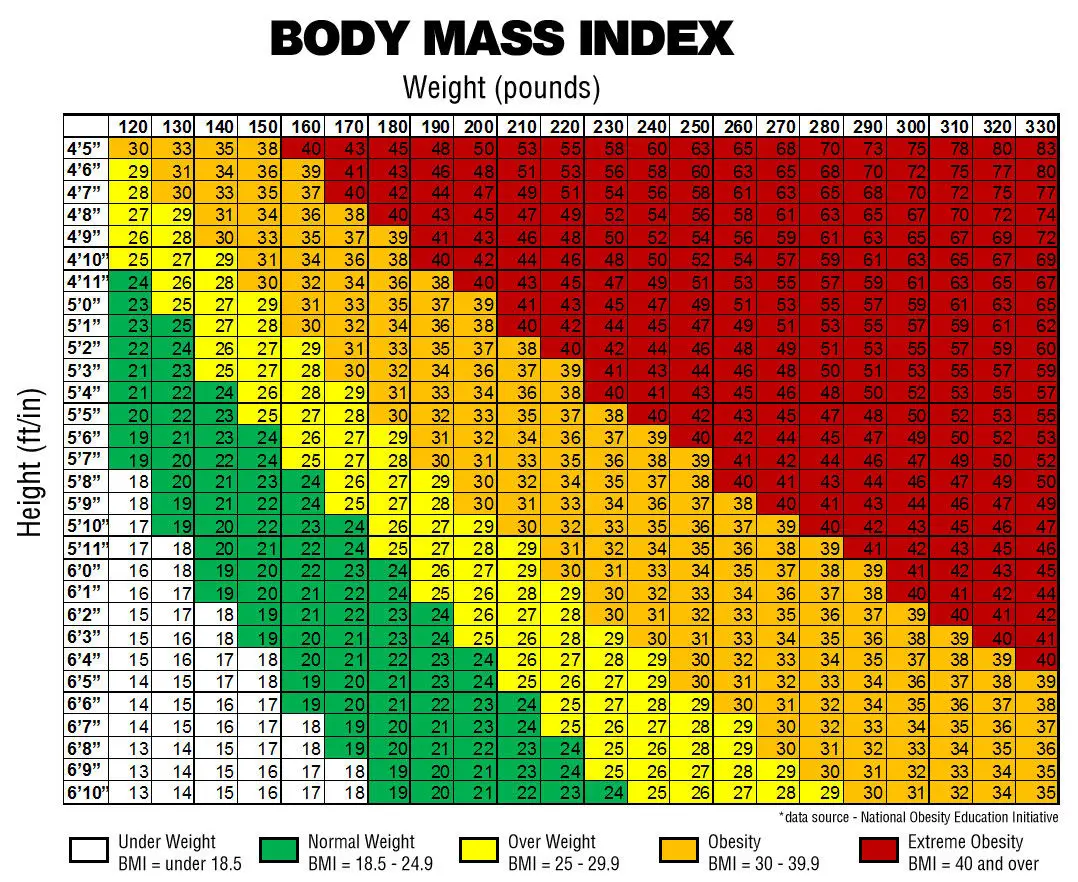
Many people wonder if they are obese or overweight based on their Body Mass Index (BMI). BMI is a measure of body fat based on your height and weight. It is used to determine if you are in a healthy weight range for your height. The BMI calculation is done by taking your weight in kilograms divided by the square of your height in meters. A BMI between 25 and 29.9 is considered overweight and a BMI of 30 or higher is considered obese.
To accurately measure your BMI, it is best to get a professional medical opinion. Your doctor can measure your body fat percentage and make a proper assessment of your health. Being overweight or obese is not always a bad thing. You could be muscular and still be considered overweight or obese based on your BMI. It is important to remember that BMI is just a screening tool, not a diagnostic tool. Therefore, if you think you may be overweight or obese, it is best to talk to your doctor and get their opinion on your health. They can assess your overall health and provide the best advice for you.
How do I know if I am obese or overweight?
Body Mass Index (BMI) is a useful tool to determine whether someone is considered overweight or obese. It uses a person’s height and weight to calculate an index value. A BMI of 18.5 to 24.9 is considered normal, a BMI of 25 to 29.9 is considered overweight, and a BMI of 30 or higher is considered obese. To calculate your BMI, divide your weight in kilograms by your height in metres squared. You can use an online BMI calculator to make the calculation easier.
If your BMI is above 24.9, then you may want to consider consulting with a healthcare professional about potential changes you could make to your diet and lifestyle. This could include increasing exercise, and reducing portion sizes or unhealthy eating habits. It is important to remember that BMI is a general measure and doesn’t always accurately reflect a person’s overall health. Other factors, such as muscle mass and body fat distribution, can affect your BMI result.
Why am I so heavy but don’t look it?
Body mass index (BMI) is an important indicator of your overall health. It can help you determine if you are underweight, overweight, or obese. But BMI alone doesn’t tell the whole story. Many people have a high BMI but don’t look it. This could be due to having a large proportion of muscle mass, which is heavier than fat.
For example, a bodybuilder could have a high BMI but look toned and fit. Another reason someone might be heavy but not look it is due to having an imbalance between their muscle and fat mass. This could mean they are skinny fat, which means they appear thin but have a high proportion of body fat. It is also important to remember that people come in different shapes and sizes, and BMI doesn’t take this into account. Some people naturally carry more weight and appear larger, while others may be thin but still have a high BMI. For anyone concerned about their weight, it is best to consult a health professional. They can provide more accurate information and advice on how to reach a healthy weight.
How many pounds overweight is considered obese?
Body Mass Index (BMI) is a measure used to determine if someone is overweight, underweight or obese. It is calculated using a person’s weight in kilograms divided by the square of their height in meters. Generally speaking, an individual is considered overweight if their BMI is 25 to 29.9 and obese if their BMI is 30 or higher. However, it is important to note that BMI does not directly measure body fat. Therefore, it is not always an accurate measure of how much body fat a person has.
In addition, BMI does not take into account other factors such as body frame size, age, gender, or muscle mass. Therefore, it is important to note that even if a person is classified as having a BMI of 30 or higher, it does not necessarily mean that the person is obese. The amount of weight that a person must gain to be considered obese is highly individualized. Therefore, it is best to consult with a healthcare professional to determine if you are obese or at risk for obesity-related health conditions.
How to tell if you are overweight?
Body Mass Index (BMI) is a measure of body fat that is calculated using your height and weight. BMI is often used to determine whether someone is overweight or not. If your BMI is between 18.5 and 24.9, you are considered to be a healthy weight. If you have a BMI of 25 or higher, you are considered to be overweight. If you have a waist circumference of more than 40 inches for men and 35 inches for women, it’s another indication that you may be overweight.
You can also determine if you are overweight by calculating what is known as your body fat percentage. This is the total amount of fat in your body as a percentage of your total body weight. Generally, if your body fat percentage is higher than 25% for men and 32% for women, it may be a sign that you are overweight. If you are concerned that you may be overweight, it is important to talk to your doctor. They can help you determine if you are at a healthy weight and provide advice on how to reach a healthier weight if necessary.
How do I know if I am overweight?
Body Mass Index (BMI) is an important indicator of overall health. It is calculated by dividing a person’s weight in kilograms by their height in meters squared. If your BMI is lower than 18.5, you are considered underweight. If your BMI is 18.5-24.9, it is within the normal range. If your BMI is 25-29.9, you are considered overweight.
If your BMI is higher than 30, you are considered obese. You can calculate your BMI with a simple online calculator or with a doctor’s help. A doctor or health professional can also give you personalized advice on maintaining a healthy weight. When it comes to knowing if you are overweight, BMI can be used as a general guide. However, it is important to remember that BMI does not take into account your age, gender, or muscle mass. It is also important to look at other factors, such as your overall physical activity level, the amount of fat in your body, and your waist circumference. If you are concerned about your weight, it is important to speak to a doctor or medical professional for a proper diagnosis and treatment options. They can help you create a plan to reach and maintain your healthiest weight.
How bad is a BMI of 30?
A body mass index (BMI) of 30 is considered to be obese. This is calculated by dividing a person’s weight in kilograms by their height squared in meters. It is important to note that BMI is only an indicator and should be used to assess health risks alongside other measures such as percentage of body fat, overall health and nutrition. Being obese can put someone at risk for a variety of health problems such as heart disease, diabetes, and certain types of cancer. People with a BMI of 30 are at an increased risk of developing weight-related illnesses, so they should take steps to lower their BMI and improve their overall health.
It is important to recognize that BMI is not a perfect measure, as it does not take into account someone’s muscle mass or bone structure which can impact their BMI score. For this reason, it is important to speak with a doctor about your BMI and overall health in order to get an accurate assessment of your risk for health problems. Despite the imperfections of BMI, it is still a useful tool for assessing general health risks associated with obesity. If your BMI is 30 or higher, it is important to take steps to improve your health through exercising, eating healthier and speaking with a doctor about your health. Taking these small steps can make a big difference in overall health and wellbeing.
bmi obesity scale
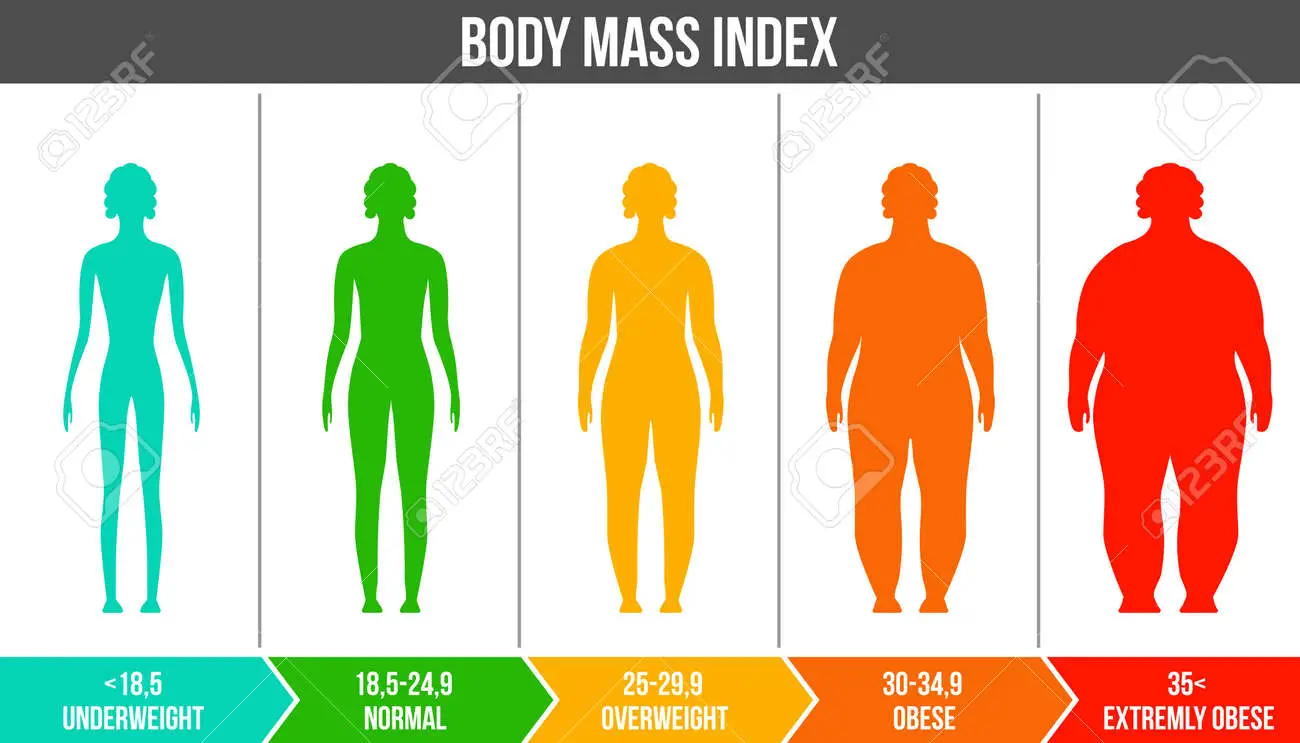
Body Mass Index (BMI) is a scale used to assess a person’s weight status in relation to their height. It is commonly used to identify individuals who are overweight, underweight, and obese. BMI is calculated by dividing a person’s weight in kilograms by their height in meters squared. A BMI of 18.5 or less is considered underweight, 18.5-24.9 is considered healthy weight, 25-29.9 is considered overweight, and 30 or higher is considered obese. However, it is important to note that BMI is not an accurate measure of body fatness, as it does not consider a person’s muscle mass, bone density, or overall body composition.
Obesity is a serious public health issue that affects millions of people worldwide. It is associated with an increased risk of chronic diseases, such as type 2 diabetes, hypertension, and heart disease. To help prevent and manage obesity, it is important to maintain a healthy weight through diet and regular physical activity. For people who are overweight or obese, it is important to regularly monitor their BMI and consult with a doctor or dietitian to help them reach and maintain a healthy weight. A BMI of 25 or higher can be an indicator of health risks, so it is important to pay attention to changes in BMI and modify lifestyle habits to maintain a healthy weight. Overall, the BMI scale is an important tool for helping to assess a person’s weight status. While it is not a perfect measure of body fatness, it can be useful in identifying individuals who are at risk for obesity and other chronic health conditions.
What is the BMI level for obesity?
Obesity is defined as a BMI of 30 or greater. This indicates that a person has too much body fat and is at increased risk of certain health problems. Generally, a BMI of 25 to 29.9 is considered overweight, while a BMI of 18.5 to 24.9 is considered healthy. People who are obese are at increased risk for a number of health conditions, such as type 2 diabetes, high blood pressure, heart disease, stroke, and certain types of cancer. It is important to seek medical advice if your BMI is 30 or greater.
The best way to reduce BMI and avoid obesity is to maintain a healthy diet and get regular physical activity. Eating nutritious foods and engaging in physical activity can help to maintain a healthy weight and reduce the risk of obesity. In addition to diet and exercise, it is important to talk to a doctor if you are concerned about your BMI or if you have any other health concerns. It is important to take steps to reduce your risk of obesity and its associated health complications.
Is BMI an accurate measure of obesity?
Body Mass Index (BMI) is a measure of body fat based on height and weight that is often used to determine if an individual is obese. While BMI is a good measure of general health, it does not always accurately reflect an individual’s actual body fat percentage. For example, a person with a large muscular build may have a high BMI, but not be overweight or obese. Similarly, a person of the same height and weight, but with a much higher percentage of body fat, may have the same BMI but actually be obese. BMI is also not a reliable way of determining obesity in adolescents and children because their body composition is constantly changing and developing.
Children between the age of 5 and 18 should not be assessed for obesity using BMI. Instead, it is better to look at body composition or waist circumference. Overall, Body Mass Index is a useful tool for determining a person’s general risk of health issues, but it is not always an accurate measure of obesity. For a more accurate measure, other methods such as body composition or waist circumference should be used.
Why is BMI used to measure obesity?
Body Mass Index (BMI) is a measure used to assess a person’s relative body composition. It is a ratio of a person’s weight to their height and is used to determine whether a person is underweight, of normal weight, overweight or obese. BMI is used to measure obesity because it is an effective way to assess a person’s body composition without having to measure their body fat directly. It also provides a basis for comparing individuals of differing heights. Furthermore, BMI has been found to be a reliable indicator of health risks associated with being overweight or obese.
Studies have shown that people with higher BMIs tend to have a higher risk of developing health problems such as heart disease, diabetes, and stroke. In addition, BMI is used as a population-level measure of obesity because it is an efficient way to track changes in obesity trends over time. This helps governments and health organizations identify areas where obesity is a problem, and target interventions in those communities. Overall, BMI is a convenient and cost-effective way of assessing obesity, and provides a useful measure of population-level obesity trends. As such, it is an important tool for healthcare professionals and policy makers.
Can we trust BMI to measure obesity?
Body Mass Index (BMI) is a measure of body fat based on height and weight. It is used to determine whether someone is overweight, obese, or underweight. BMI has been used for many years as a tool to identify people who are at risk for health conditions related to excess weight. However, there are a few things to consider when trusting BMI to measure obesity. BMI does not take into account gender, age, or muscle mass, so it may not give an accurate assessment of an individual’s body composition.
Additionally, BMI can underestimate body fat in athletes or those who are muscular. BMI is a useful tool to estimate one’s risk of health conditions related to excess body fat, but it is important to remember that it is not a perfect measure. It is important to consider other factors, such as waist circumference, when assessing body fat. In addition, it is important to consult with a doctor if there are any concerns about weight. Overall, BMI can be helpful in determining one’s risk of health conditions related to excess body fat, but it is not a perfect measure. It is important to consider other factors, such as waist circumference, when assessing body fat. Additionally, it is important to consult with a doctor if there are any concerns about weight.
Is a BMI considered overweight?
Body Mass Index (BMI) is an important measure of someone’s health and wellbeing. It is calculated using a person’s height and weight, and is used to determine if someone is a healthy weight, overweight or obese. If a person’s BMI is greater than 25, they are considered to be overweight. However, this is not a definitive measure as it does not take into account a person’s muscle mass or body shape. For example, someone who is muscular may have a high BMI, but not be overweight.
It is important to remember that BMI is not a perfect measure of someone’s health as muscle mass and body shape are not taken into account. To determine your health and wellbeing, it is recommended that you do a physical or fitness assessment with your doctor. It is also important to remember that BMI is only a general guide and should not be the only factor in deciding if someone is overweight or not. Instead, it should be used with other measures such as waist circumference and health indicators to make an accurate assessment. Overall, BMI is a useful measure that can be used to determine if someone is overweight, but should not be used in isolation and should instead be used with other measures to get an accurate assessment.
body mass inde
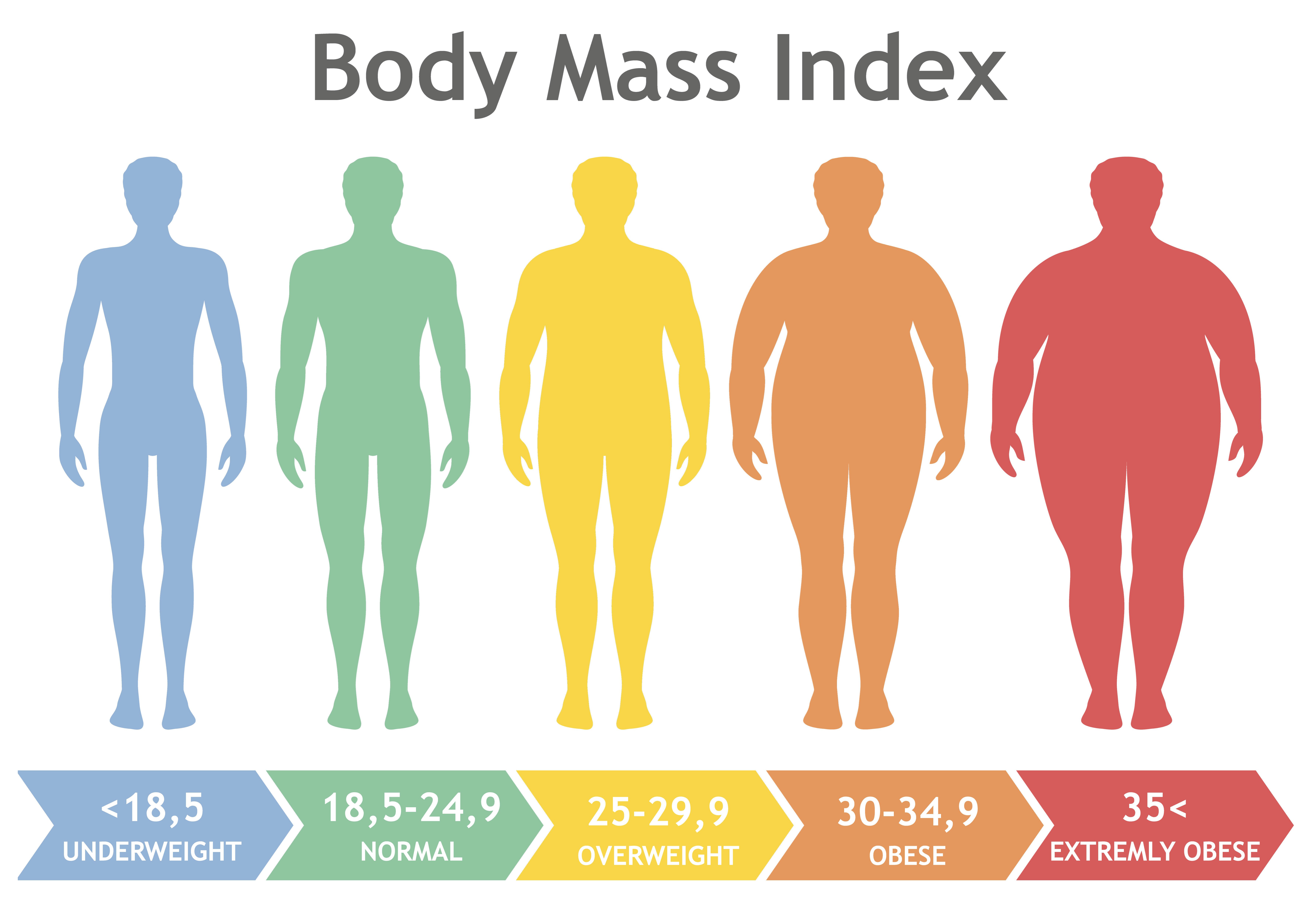
Body Mass Index (BMI) is an important measurement used to assess an individual’s health. It is calculated using a person’s height and weight and gives an indication of their body fat levels. It is used to determine whether a person is underweight, normal weight, overweight or obese. A BMI of between 18.5 and 24.9 is considered healthy, while a BMI of 25 or higher indicates that a person is overweight. It is important to remember that BMI is only a guideline and other factors, such as age, gender, ethnicity and muscle mass, should be taken into consideration.
It is also important to remember that BMI is not a perfect measurement, as it does not take into account where the fat is distributed in the body. For example, a person who has a high BMI may not necessarily be unhealthy if the fat is located primarily in their muscles. BMI is a useful tool for assessing a person’s overall health. It can be used to help determine whether a person needs to make lifestyle changes to reduce their risk of obesity-related health problems. It is also helpful for healthcare professionals to monitor the health of individuals over time. Overall, Body Mass Index is an important indicator of a person’s health and should be considered when making decisions about lifestyle changes.
What is BMI and how its calculated?
Body Mass Index (BMI) is a measure of the relative proportion of your weight to your height, and is used as a general indicator of health. It is calculated by dividing your weight (in kilograms) by your height (in meters squared). A normal BMI is between 18.5 and 24.9, while a BMI below 18.5 is considered underweight, and above 24.9 is considered overweight. BMI is an important measure to have, as it helps to identify people who may be at risk of developing weight-related health conditions. This can be an early warning sign that someone needs to make changes to their lifestyle.
BMI is not a perfect measure, as it does not take into account muscle mass, bone density, gender or age. It is still a useful tool for assessing general health, and should be discussed with your doctor if you have any concerns about your BMI. It is important to remember that BMI is only one of many factors that can indicate overall health, and should not be used as the only measure of health. Other lifestyle factors like diet, physical activity, alcohol intake and smoking, should also be taken into consideration. Ultimately, BMI is an important tool for assessing your health, and making the necessary lifestyle changes to ensure that you maintain a balanced diet and exercise regularly. It should, however, not be the only indicator of a person’s health, as there are many other factors to consider.
What is a good BMI for my age?
Body Mass Index (BMI) is a measurement of health based on an individual’s height and weight. It is often used to determine if a person is at a healthy weight for their age. A good BMI for an individual is usually within the range of 18.5-24.9. The ideal BMI for each age group is slightly different. Generally, children and teenagers should have a BMI between the 5th and 85th percentiles.
For adults, a BMI between 18.5 and 24.9 is considered optimal. For seniors, a BMI between 23 and 27.5 is considered healthy, although some medical professionals believe that a slightly higher BMI is healthier for individuals over the age of 65. It is important to remember that BMI is only an estimate. It is not an accurate measurement of health, as people with a healthy BMI may still have unhealthy habits. It is also important to take into account other factors, such as muscle mass, when determining what is a healthy BMI for your age. It is always important to talk to your doctor about any health concerns, and to follow their advice about what is a good BMI for your age.
How do I calculate my BMI formula?
Body Mass Index (BMI) is a measure of body fat based on an individual’s height and weight. It is used to calculate whether an individual is underweight, overweight or has a healthy weight. To calculate BMI, start by measuring your height and weight in either metric or imperial units. Once you have these measurements, use the following formula to calculate your BMI: BMI = Weight (Kg) / (Height (m) x Height (m)). For example, if you weigh 75kg and are 1.8m tall, your BMI will be calculated as follows: 75 / (1.8 x 1.8) = 24.7.
The resulting number is your BMI. Generally, a BMI of 18.5 to 24.9 is considered a healthy weight. If your BMI is under 18.5, you may be underweight, and if your BMI is above 24.9, you may be overweight. It is important to remember that BMI is only a rough estimate of body fat and should not be used as a replacement for more accurate methods of determining body fat. BMI does not take into account a person’s body shape, ethnicity or other individual factors, so it is best to speak with a doctor to get a more accurate assessment of your body fat.
What is Body Mass Index example?
BMI is commonly used to determine whether an adult is underweight, normal weight, overweight, or obese. A BMI of 18.5 to 24.9 is considered to be a healthy weight for an adult. A BMI of 25.0 to 29.9 is considered to be overweight, and a BMI of 30.0 or higher is considered to be obesity. It is important to note that BMI is not a diagnostic tool and should not be used to diagnose obesity or health concerns. BMI should be used as a guide to help health professionals assess a person’s risk for developing health problems such as heart disease, diabetes, and high blood pressure.
BMI should also be used in conjunction with other measures such as body fat percentage and waist circumference to determine a person’s overall health. Additionally, there are factors such as age, gender, ethnicity and muscle mass that should be taken into account when assessing a person’s BMI and their risk of developing health problems. Overall, Body Mass Index is an effective way to assess an adult’s level of body fat. It is important to remember that BMI is only one part of overall health assessment and should be used in combination with other measures to determine a person’s risk for health problems.
How do you calculate BMI formula?
Body Mass Index (BMI) is an important measure of health. It is calculated using a simple formula based on an individual’s height and weight. To calculate your BMI, you need to first know your height in either centimetres or metres and your weight in kilograms. Once you have the height and weight measurements, the formula is BMI = weight (kg) divided by height (m) squared. This result is then rounded to one decimal place.
For example, if you are 1.8 metres tall and weigh 72 kg, your BMI can be calculated using this formula: 72 divided by 1.8 squared = 24.4. Once the calculation is complete, you can use a BMI chart to interpret the results. A result between 18.5 and 24.9 is considered healthy. A BMI of over 25 is considered overweight, while a result below 18.5 is considered underweight. It is important for people to be aware of their BMI and health status, as a high BMI can increase the risk of certain health problems. Regular check-ups with a doctor and tracking your BMI on a regular basis can help you stay healthy and prevent any potential health issues.
body mass i ndex

BMI does not measure body fat directly, but instead uses a formula of weight and height to estimate body fat. A person’s BMI is calculated by dividing his or her weight in kilograms by the square of his or her height in meters. A BMI of 18.5 to 24.9 is considered healthy, while a BMI of 25 or higher is considered overweight. A BMI of 30 or higher is considered obese. BMI is a useful tool for determining whether a person is at a healthy weight, but it is not foolproof.
It does not take into account age, gender, muscle mass, or body fat. It is also not suitable for pregnant women or children. The most important thing to remember about BMI is that it is only one factor in determining if a person is healthy or not. It can be used to help understand overall health, but should not be considered the only measure of health. Regular physical activity and a balanced diet are important for overall health.
What is the correct BMI for my age?
Body Mass Index (BMI) is a measure of body fat based on your height and weight. It is used to determine whether your weight is healthy or not. It’s important to determine your BMI as it can help you understand your risk for certain health conditions. The correct BMI for your age is determined by taking your weight in kilograms and dividing it by your height in meters squared. Generally, those between 18 and 25 are considered normal weight, while those between 25 and 30 are considered overweight.
Your age can also play a role in determining your ideal BMI. For example, older adults may have a higher BMI and still be healthy, while younger adults may have a lower BMI and still be healthy. It’s important to remember that BMI isn’t the only factor to consider when it comes to your health. Other factors like activity level, muscle mass, and body fat percentage should also be considered. The best way to determine the correct BMI for your age is to talk to your doctor. They can take into account all of the factors mentioned above and give you personalized advice on how to stay healthy.
What is the best BMI for a senior woman?
Body Mass Index (BMI) is an important tool to evaluate the health of a senior woman. It is a ratio of weight to height and is used by medical professionals to determine if a person is overweight, underweight, or in the healthy range. For a senior woman, the best BMI is usually between 21 and 27. This range is considered a healthy weight and the risk of chronic health issues is low. If the BMI of a senior woman is below 21, then she may be considered underweight and will need to increase her weight to be in the healthy range.
Similarly, if the BMI is above 27 then she may be considered overweight and will need to reduce her weight. Being in a healthy BMI range is important for a senior woman because it reduces her risk of developing chronic diseases such as heart disease, stroke, and diabetes. It also helps to maintain good mobility, strength, and energy levels. Therefore, the best BMI for a senior woman is between 21 and 27. Eating a balanced diet and exercising regularly can help her achieve and maintain a healthy weight and reduce her risk of chronic health issues.
What is the best BMI for a woman?
Body Mass Index (BMI) is an important measure of a person’s health, specifically their body fat. It is calculated by dividing a person’s weight in kilograms by the square of their height in metres. For a woman, the best BMI would be between 18.5 to 24.9. This range is considered a healthy weight, meaning the person has a low risk of developing any serious health problems. If a woman’s BMI falls below 18.5, it means she is underweight and may be at risk of certain health problems.
On the other hand, if her BMI is above 24.9, it means she is overweight and may be at risk for heart disease, diabetes, and other diseases. To maintain a healthy weight, it is important for a woman to watch what she eats and get regular physical activity. Eating a balanced diet and exercising regularly can help her maintain her ideal BMI of 18.5 to 24.9. It is important to note that BMI is not the only measure of health. Factors such as age, muscle mass, and body fat also play a role in determining a person’s overall health. Therefore, it is important to not just focus on BMI, but also to consider other factors when assessing a person’s health.
bidy mass index
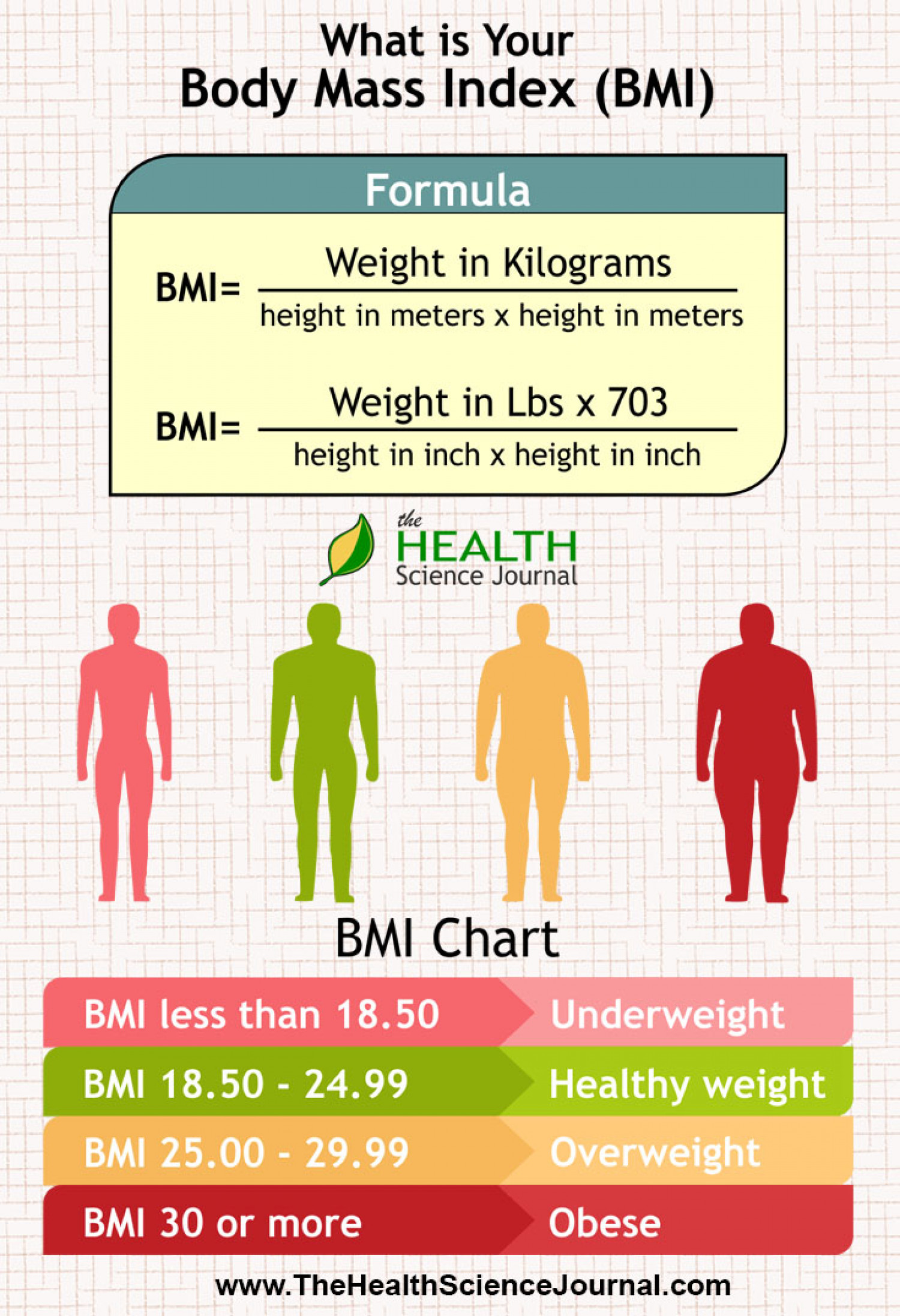
BMI is calculated by dividing a person’s weight in kilograms by the square of their height in metres. The resulting number is then used to compare a person’s weight against the average weight of a population. A healthy BMI is typically between 18.5 and 24.9. A BMI of 25 or more is considered overweight, while a BMI of 30 or more is considered obese. The BMI is a useful tool for health professionals to assess the health risks of their patients.
For example, higher BMI values can increase the risk of conditions such as heart disease, diabetes, and certain cancers. It is important to note that BMI is not a perfect measure of health. It does not take into account body fat percentage, muscle mass, or other health factors. For a more accurate assessment of health, it is important to have other measures such as waist circumference, body fat percentage, and blood pressure taken into consideration. Overall, the body mass index is a useful tool for health professionals to assess the health risks of their patients. It is important to note that BMI alone is not a perfect measure of health, but it can provide valuable information about a person’s risk for certain health conditions.
What is a normal Body Mass Index?
The Body Mass Index (BMI) is a number that is calculated based on a person’s height and weight. It is a tool used to measure a healthy body weight for adults. A BMI of 18.5 to 24.9 is considered normal, or healthy. It indicates that a person is not too thin or too overweight. A BMI below 18.5 is considered underweight, and a BMI over 24.9 is considered overweight.
However, different factors other than BMI can impact whether a person is considered healthy or not, such as age and body shape. For example, a muscle-bound person may appear overweight based on the BMI scale, but may actually be healthy. Additionally, age can also influence a person’s BMI, since older adults may have a higher BMI score even though they are healthy. It is important to remember that BMI is just one tool used to determine a person’s overall health. It is not always reliable, and should not be used as the only measure of health. Your doctor can help you to determine if you are of normal weight range, and make sure that you are healthy and fit.
body massi ndex
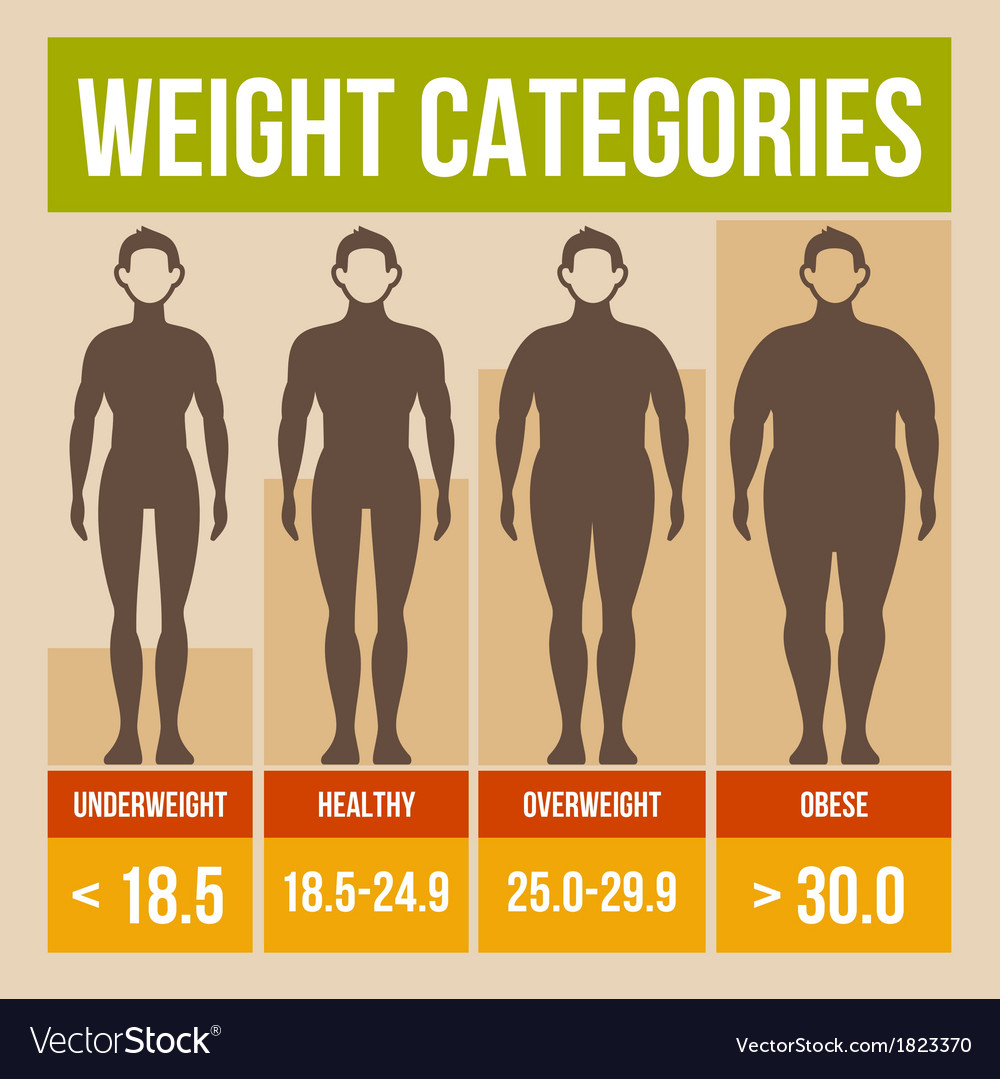
Body Mass Index (BMI) is a measure of body fat based on height and weight. It is used to determine if an individual is underweight, healthy, overweight, or obese. To calculate BMI, divide your weight (in kilograms) by your height (in metres squared). The resulting number is your BMI. A BMI of 18.5 to 24.9 is considered healthy.
A BMI of 25 to 29.9 is considered overweight, while a BMI above 30 is considered obese. Being overweight or obese increases your risk of developing a range of illnesses, including high blood pressure, heart disease, stroke and type 2 diabetes. Therefore, it is important to keep track of your BMI to maintain a healthy weight. Being underweight can also be unhealthy, and can indicate an underlying health condition. If your BMI is below 18.5, you should see your doctor to find out why. By monitoring your BMI, you can take steps to maintain your health and protect yourself from the negative effects of an unhealthy weight.
What is body mass index and why is it so important?
BMI is an important indicator of overall health, as it can help to determine if a person is underweight, overweight, or in a healthy weight range. It is also used to assess a person’s risk of developing certain health conditions, such as heart disease and diabetes. Having a healthy body weight is important for both physical and mental health. Having too little or too much body fat can have both short and long-term health implications. Eating a balanced diet and engaging in regular physical activity are important for achieving and maintaining a healthy BMI.
BMI is not a perfect measure of a person’s health because it does not take into account factors such as muscle mass, body fat percentage, or overall body shape. That being said, it can still be a useful tool for gauging a person’s risk for certain health conditions. Overall, BMI is an important measurement that can help indicate a person’s health and wellbeing. It can help a person understand if they are at an ideal weight, or if they may need to make changes to their diet and lifestyle to reach a healthy weight.
What is the best way to calculate body mass index?
Calculating your BMI can help you to determine if you are at a healthy weight or if you need to make changes in order to improve your health. The best way to accurately calculate your BMI is to use your weight and height measurements. You can use either Imperial or metric measurements, whichever is more convenient for you. To calculate your BMI, simply divide your weight in kilograms by your height in metres squared or your weight in pounds divided by your height in inches squared, multiplied by 703. Knowing your BMI is an important part of maintaining your health, as it can help to determine if you are at a healthy weight and if you need to make changes in order to improve your health.
A BMI of 18.5 to 24.9 is considered to be a healthy weight. If your BMI is below 18.5, you may be underweight, and if it is above 24.9, you may be overweight. Having a higher BMI than the recommended range can put you at increased risk for a variety of health problems, including heart disease, high blood pressure, stroke, and type 2 diabetes. So it is important to know your BMI and make lifestyle changes in order to maintain a healthy weight. The best way to calculate your BMI is to use your weight and height measurements. Knowing your BMI can help you to make informed decisions about your health and make any necessary changes in order to stay healthy.
What can your body mass index tell you?
A healthy BMI is considered to be between 18.5 and 24.9. A BMI outside this range may indicate that you are either underweight or overweight and could be at risk of health problems related to your weight. Having a BMI outside the healthy range is not a cause for panic, but it can be a sign that you should take steps to modify your lifestyle. If you are overweight, it can be beneficial to reduce your calorie intake, increase your physical activity, or both. Similarly, if you are underweight, you should aim to increase your calorie intake to gain healthy weight.
Your doctor can use BMI to help diagnose some health conditions. For example, BMI can be used to diagnose obesity-related conditions such as Type 2 diabetes, high blood pressure, and heart disease. It is important to remember that BMI is just one indicator of overall health. Other factors, such as your body fat percentage, muscle mass, and waist circumference, can also provide additional information about your health. Ultimately, the best way to assess your health is to work with your doctor and make lifestyle changes as needed.
How to calculate a body mass index?
Body Mass Index (BMI) is a measure used to determine whether an individual is at a healthy weight for their height. It is calculated by dividing a person’s weight in kilograms (kg) by the square of their height in metres (m). To calculate your BMI, take your weight in kilograms and divide it by your height in metres squared. For example, if you weigh 70 kg and you are 1.75 metres tall, then your BMI is 70 divided by 1.75 x 1.75 = 23.4. The resulting number is your BMI score, which falls into one of four categories; underweight, healthy weight, overweight, and obese.
Generally, a BMI score between 18.5 and 24.9 is considered a healthy weight. If you have a BMI score of less than 18.5 you are considered to be underweight. A score between 25 and 29.9 means you are considered to be overweight, while a score over 30.0 is classified as obese. It is important to remember that BMI is only one measure of health and should not be used as the sole determinant of health. Factors such as overall fitness, body shape, muscle mass, and body fat percentage should also be taken into account.
body mass indez
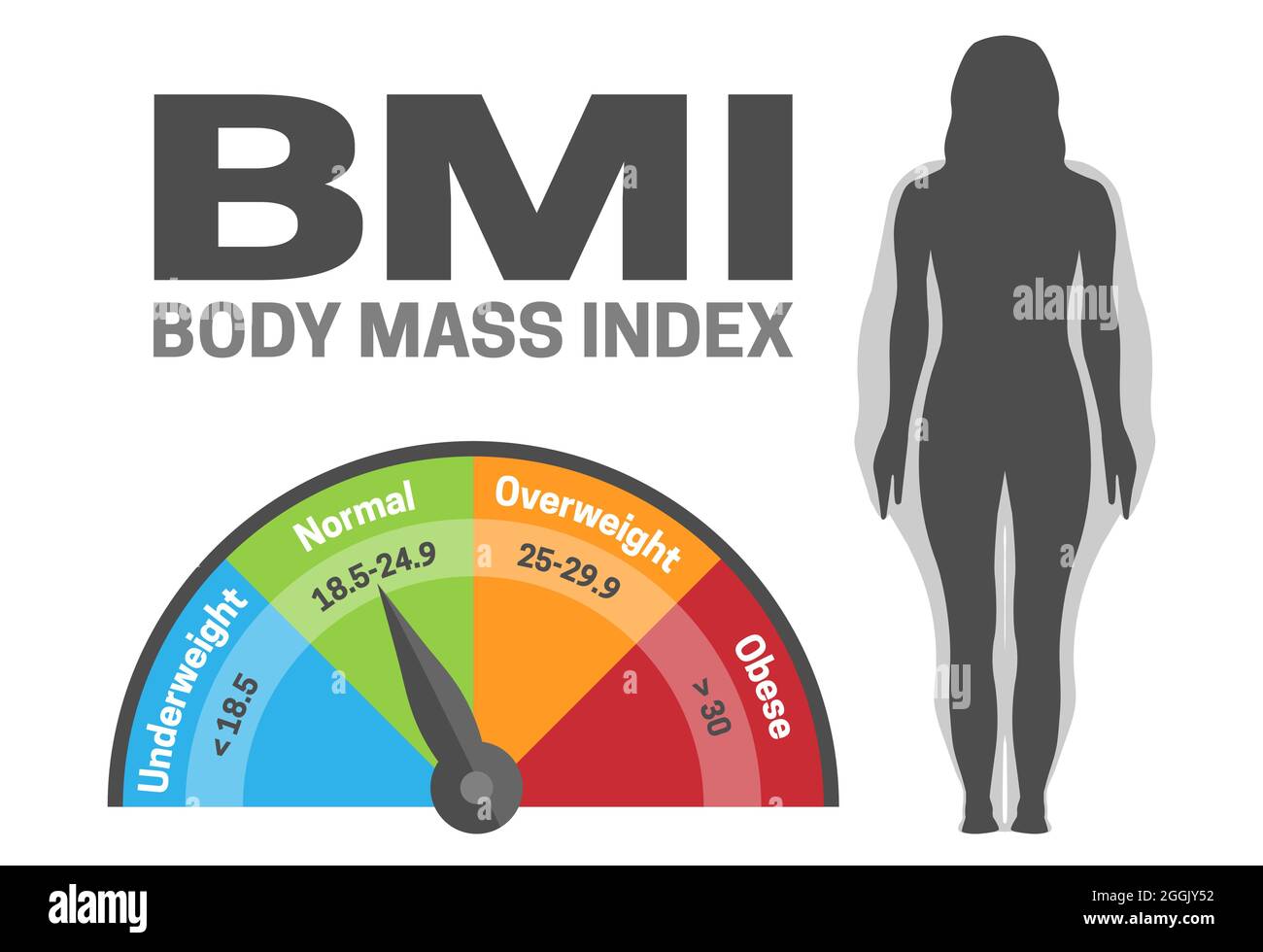
Body Mass Index (BMI) is a measure of body fat based on height and weight. It is a reliable indicator of the amount of body fat a person has, and can help determine if someone is at a healthy weight for their height. A BMI of 18.5 to 24.9 is considered to be in the healthy range. Those with a BMI below 18.5 are considered underweight, and those with a BMI above 24.9 are considered overweight. BMI can be used as a guide to help people make informed decisions about their health and lifestyle.
It can help people determine whether they need to make changes to their diet and exercise habits. It is important to remember, however, that BMI is only a guide and it is not an exact measure of body fat. Other factors such as age, muscle mass, and body shape can affect the accuracy of the result. It is important to talk to a doctor or health professional before making any decisions based on BMI results. They can help with interpreting the results, and can offer advice and guidance on how to achieve and maintain a healthy weight. Overall, Body Mass Index can be a helpful tool in evaluating your health and helping to make informed decisions about lifestyle changes. However, it is important to remember that it is only a guide, and to consult with a doctor for advice on the best course of action.
How to improve your body mass index?
Improving your body mass index (BMI) is an important step in maintaining a healthy lifestyle. The first step is to determine your current BMI by calculating your weight and height. Once you know your BMI, you can start to make changes to your diet and lifestyle to bring it within a healthy range. Eating a balanced diet, including a variety of fruits, vegetables, and whole grains, is important for maintaining a healthy BMI. You should also limit your consumption of processed and sugary foods, as well as unhealthy fats.
Exercise is also an important factor in improving your BMI. Aim for 30 minutes of physical activity per day, which can include anything from going for a walk to playing sports. Getting enough sleep is also essential for maintaining a healthy BMI. Aim for 7-8 hours of sleep per night, and try to stick to a regular sleep schedule. Additionally, it’s important to minimize stress and practice stress management strategies such as yoga, meditation, or journaling. Finally, if you need help with making lifestyle changes, consider talking to a nutritionist or dietician. They can help you set specific goals and provide individualized support to help you reach them. Overall, by making healthy diet and lifestyle changes, you can improve your BMI and remain in a healthy weight range.
How reliable is body mass index?
Body Mass Index (BMI) is a measure of body fat based on an individual’s height and weight. It is used to assess a person’s risk for certain health conditions and can help indicate if a person is underweight, normal weight, overweight, or obese. Generally, BMI is considered to be a reliable indicator of overall health. Studies have shown that it is a good indicator of an individual’s body fat percentage, and it is also correlated with other measures of body fat such as skinfold thickness and waist circumference. However, it is important to note that BMI is not always accurate.
While it is a good indicator of body fat percentage and overall health, it does not take into account different body types. For example, someone with a lot of muscle may have a high BMI but still be healthy. In addition, BMI does not take into account age, gender, ethnicity, or body composition. For example, a person’s BMI may not accurately reflect their health status if they are pregnant, breastfeeding, or have a medical condition such as anemia or osteoporosis. Overall, BMI is a useful tool for assessing a person’s overall health and risk for certain health conditions. However, it is important to keep in mind that it is not a perfect indicator and should not be used as a sole measure of health. A person’s lifestyle, medical history, and other factors should also be taken into account when assessing their overall health.
What does body mass index tell you?
Body Mass Index (BMI) is an important measure of a person’s overall health and fitness. It is calculated by dividing a person’s weight in kilograms by their height in meters squared. It can also be calculated using pounds and inches. A BMI of 18.5 to 24.9 is considered to be in the healthy range, while a BMI below 18.5 is considered underweight and a BMI above 25 is considered overweight. Those with a BMI over 30 are considered obese.
BMI is only an indicator of body fat and does not directly measure body fat. It does not provide information about body fat distribution and is not specific to gender or age. It is also important to consider other factors such as medical history, exercise, and nutrition when determining health and fitness. Overall, BMI can be an important tool for measuring overall health and fitness. It is important to speak to a healthcare professional to determine if any additional assessments or tests are needed to accurately assess health and fitness.
What is the ideal body mass?
Body Mass Index (BMI) is a measure of a person’s body composition. It is calculated by dividing the individual’s weight in kilograms by their height in metres squared. A BMI of 18.5 to 24.9 is considered to be the ideal body mass. This means that the person has a healthy weight and is not underweight or overweight. Having a BMI in this range is associated with a lower risk of developing certain illnesses such as heart disease, stroke, and type 2 diabetes.
People with lower or higher BMIs are more likely to suffer from one or more of these illnesses. An ideal body mass is important for overall physical and mental health. Being at a healthy weight can reduce the risk of serious health problems, improve the quality of life and reduce stress. Regular exercise and a balanced diet are the two main components of achieving and maintaining an ideal body mass. Eating a variety of nutritious food and staying physically active can help a person reach and maintain a healthy weight and reduce the risk for chronic diseases. It is important to remember that every person is different and what is considered to be an ideal body mass for one person may not be so for another. The best way to find out one’s ideal body mass is to talk to a healthcare professional.

